Tactile Textiles: The Calming Cushion
Can handling 'playful things' provide focus and relieve anxiety? Students are increasingly seeking mental health support – most commonly for anxiety disorders. This research will explore how touch can be a tool for relieving anxiety.

“It’s been great to have different perspectives and experience in the group, I think it means we come up with better more rounded ideas and solutions to problems. I think it has been particularly good to have a group that is not purely academic…since Annie has helped us to view the project from a human-oriented approach and not get too lost in the academic approach! … Personally I’ve loved working with the group and having everyone’s different input!” Alice Haynes
Being connected to family and friends is essential for our physical and psychological wellbeing. Students’ first experience of living away from home is often when they start university. Rates of students seeking mental health support are increasing, with anxiety disorders being one of the most prevalent concerns. The main means students have to communicate remotely with their loved ones are auditory and visual (i.e. telephone or video calls). Yet touch is the most intimate and immediate form of communication and is important in establishing and maintaining relationships.
What did the project involve?
This research explored how touch can be a tool for relieving anxiety. To achieve this the research team investigated the role of soft interactive technology to remotely communicate empathy and emotions. They also researched which textures and materials provided comfort and created positive emotions.
Together the team created a ‘Calming Cushion’. This is a soft-and-smart object that:
- Is pleasant to hold and interact with,
- Senses human markers of action and behaviour,
- Acts intelligently to reduce anxiety.
The ‘Calming Cushion’ aims to induce a sense of calm and to reduce anxiety through natural, affective and tactile communication.
Who are the team and what do they bring?
- Chris Kent‘s (Experimental Psychology) research focuses on the perception of simple sensations and how anxiety affects our cognition. Chris will be supervising the behavioural studies and focus groups.
- Jonathan Rossiter (Engineering Mathematics and Bristol Robotics Lab) is a leading innovator of soft systems for robotics. Jonathan’s work is in human interaction, wearable assistance and healthcare including tactile sensing.
- Annie Lywood (Bonnie Binary) is an e-textiles designer. Her work focuses on exploring the sensory benefits of interactive textiles to address social connectivity and emotional wellbeing. Annie will facilitate the workshops and focus groups and carry out the production of the Calming Cushion.
- Emily Crowe is a Research Associate and Cognitive Psychologist.
- Emily Ball is an MSc student focusing on behavioural testing of students.
- Alice Haynes is a PhD student working on soft robotics.
What were the results?
This project developed from the successful work of the 2017 project ‘Tactile Interfaces for Older People‘ and this project developed into the 2021 project ‘Dementia Textiles‘.
The research team have developed an initial prototype and have been testing it with students in a behavioural experiment in which they induce anxiety and then measure how effective the cushion is in reducing anxiety. They have also held an initial meeting with a group of dementia patients and their partners, who really liked the prototype. The team are now looking at further funding to develop a second prototype (with internal pump and sensors) and further behavioural testing with various patient groups.
The project drew the attention of the BBC and was covered by BBC Radio Bristol in the following video ‘The Cushion that Breathes‘.
There have also been a number of articles published in relation to these extended projects:
- ‘Cuddling a Mechanical ‘Breathing Cushion’ Could Help Ease Anxiety’ | CNET Article March 2022
- ‘Experts create a ‘breathing’ cushion which can ease anxiety’ | Florida Post Article March 2022
- ‘Hugging ‘breathing’ cushion eases anxiety’ | Bristol Post Article March 2022
- ‘A calming hug: Design and validation of a tactile aid to ease anxiety’ | Journal.Pone Article March 2022
- ‘Hugging a ‘breathing’ cushion can ease anxiety before exams: study’ | MSN UK Article March 2022
- ‘Hugging a pillow that mimics breathing could reduce anxiety’ | New Scientist Article March 2022
- ‘Hugging a “breathing” cushion to ease anxiety’ | Scienmag Article March 2022


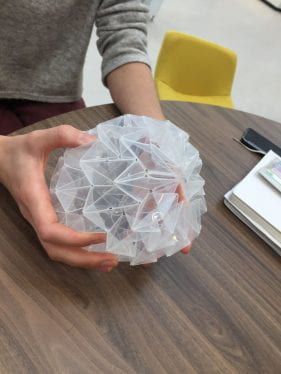
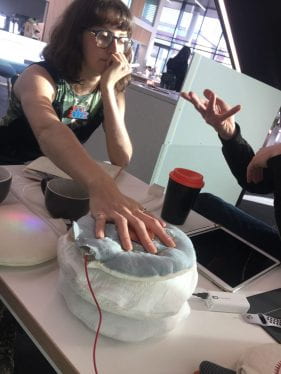
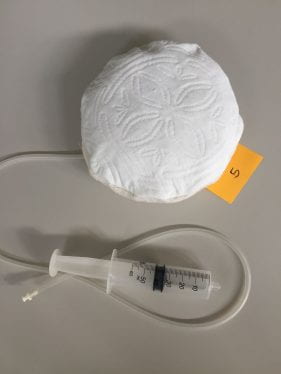
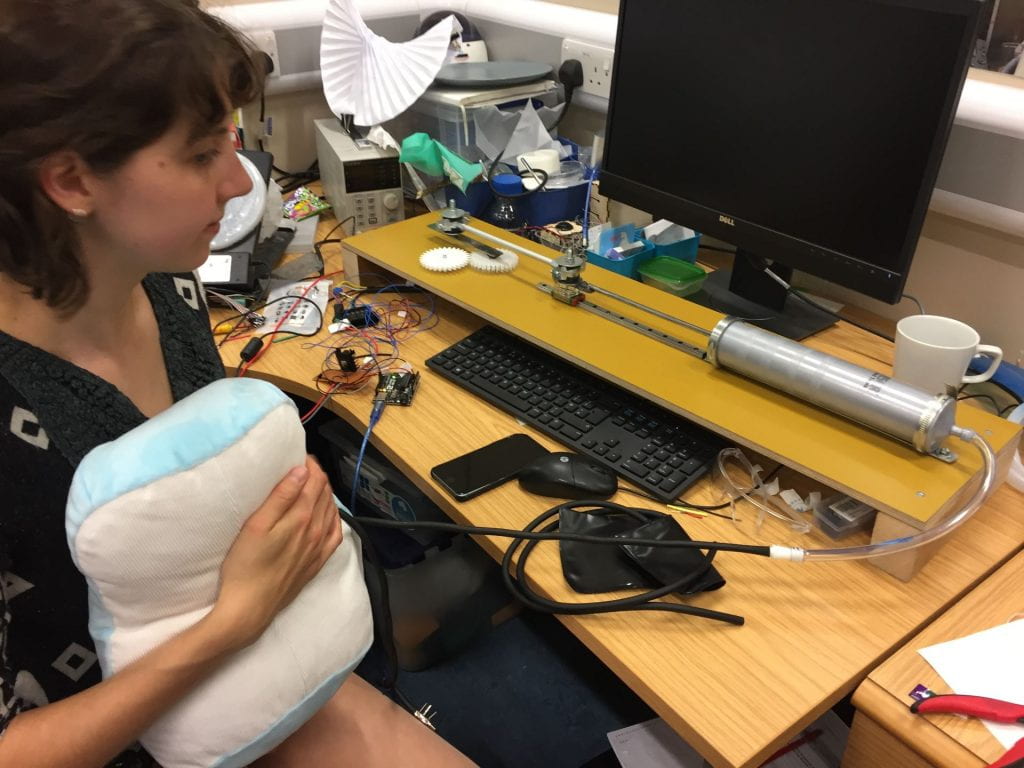
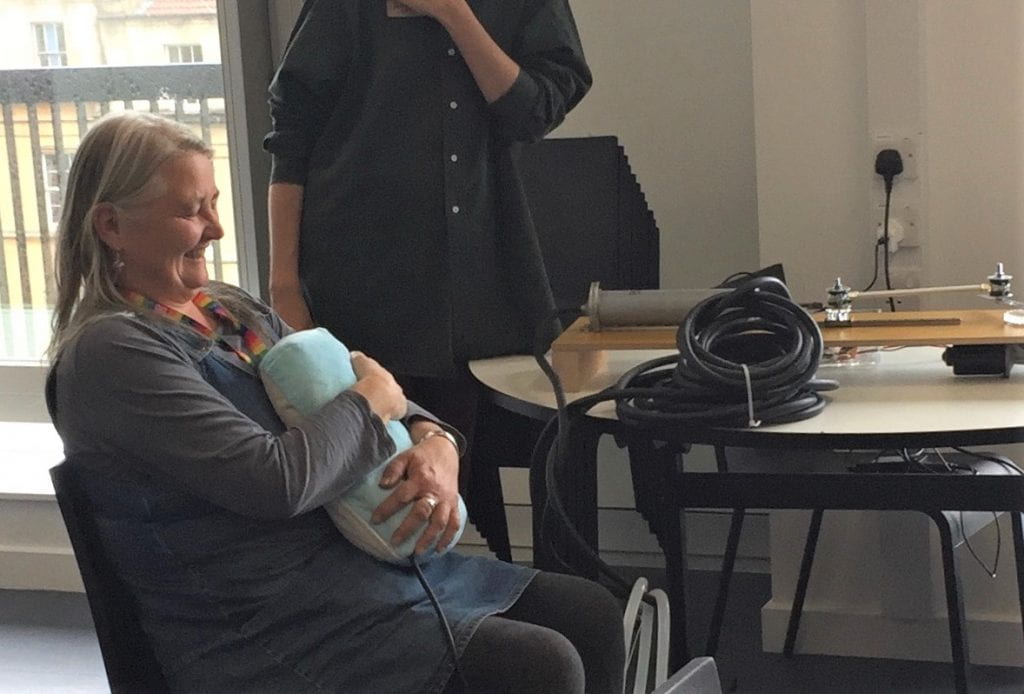
Project Social Media